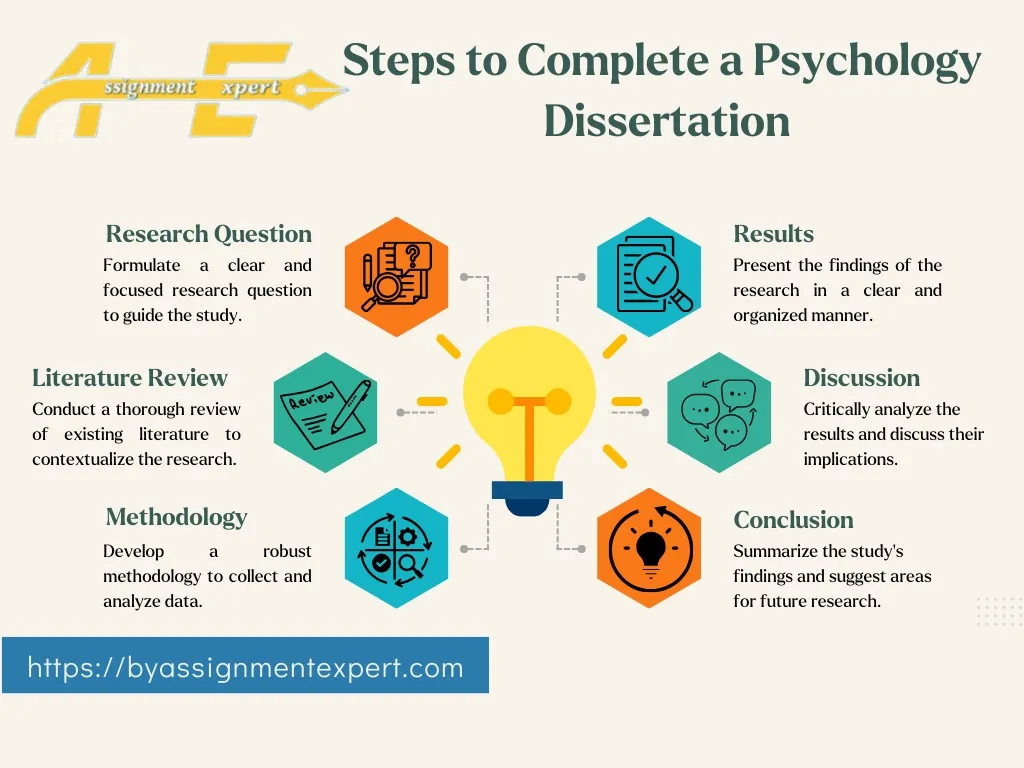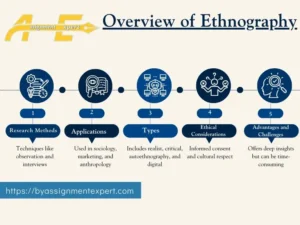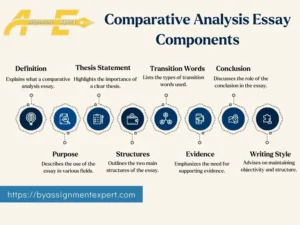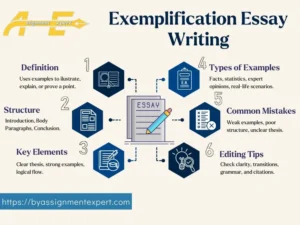A psychology dissertation is a lengthy academic paper that involves large research, analysis, and logical expression on themes. These themes are like cognitive processes, behavioral theories, psychological disorders, or any other theme within the broad topic of psychology. At every stage, it requires careful planning. In this blog, we will find out how to write an effective psychology dissertation, from topic selection to the final draft.
What is a Psychology Dissertation?
It is an extensive research paper that students usually write during the final year of study. It avails the opportunity to study an area of psychology in detail. Hence, it provides a fresh insight into academia. This writing summarizes your ability to apply psychological theories, analyze data, and present findings in a structured manner.
How to Choose Topic for Psychology Dissertation?
Choosing the topic for a dissertation is very important. Tap all your interests and passions towards the selection of a topic. Your topic must be in its scope, that allows for the ability to exhaust detailed research and analysis.
Interest and passion
Select a topic that only narrows down near the areas that capture your interests. The dissertation writing experience covers a long journey, and while one is passionate about their subject area, it will sustain the journey over time.
Relevance and Contribution
Your topic should be timely in line with the current psychological debates or issues and should aim at giving new knowledge or perspectives.
Possibility
Make sure your topic, in other words, is sustainable as regards the extent of the study. Avoid having topics that are too broad since it could make your dissertation unfocused.
What Should be Structure of a Psychology Dissertation?
The structure of a dissertation is very important as it helps to convey a message when presenting the obtained results of the research. Here’s a typical structure:
- Title Page: One with the title of your dissertation, your name, and institutional detail.
- Abstract: The following is the summary of the research which includes the identified problem, method of study, findings and recommendations.
- Introduction: Naturally, the introduction of the research problem, goals, and structure.
- Literature Review: Looking into old research being conducted on the drift of your topic to bring out the gaps that your dissertation will fill.
- Methodology: This is where the research methods you used to collect your data are explained, along with the reasons for choosing those particular methods.
- Results: Show the conducted research findings.
- Discussion: It will analyze the finding, relate it to the implications and acknowledge limitations.
- Conclusion: It provides summary and recommendations for future study.
- Reference: This is a list of all the sources you report in your dissertation so that a reader can easily locate any source of information needed.
How to Write Introduction for a Psychology Dissertation
In this section, you set the stage. The introduction should contextualize and state the research problem. At this point you should give the purpose and structure of the dissertation. Here are some key findings:
- Start with the big picture and bring everything into context.
- Slowly work your way to your question or issue.
- Clearly define the research problem your dissertation addresses.
- Explain why it is important and what contributions your research will make.
- State clearly the intention of your study and the questions you intend to tackle.
- Briefly outline the structure of your dissertation.
How to Write Psychology Dissertation Literature Review?
The literature review is a part of your dissertation. It reveals your deep understanding of the subject matter of the research study and builds some background for it.
Extensive Search
This should be well-begun by an extensive search of the relevantly available literature. You must make good use of academic databases such as PubMed, PsycINFO, Google Scholar for finding studies.
Critical review
This is not just a summary of the literature, but an overview with critical evaluation. This may well include discussion about the strengths and weaknesses of various studies and how they all bear on the research question.
Identify Gaps
Point to where the gaps are in the research that your dissertation will fill. Demonstrate that your study provides a certain value which hasn’t been previously discussed by other academicians.
Thematically Organize
Organize your literature review around themes or key issues rather than just a chronological listing of studies. This makes it easier to pick out trends and patterns in the research.
Methodology in Psychology Dissertation
A methodology will detail how you conducted your research. It must be full-bodied, so that another person could re-do your study.
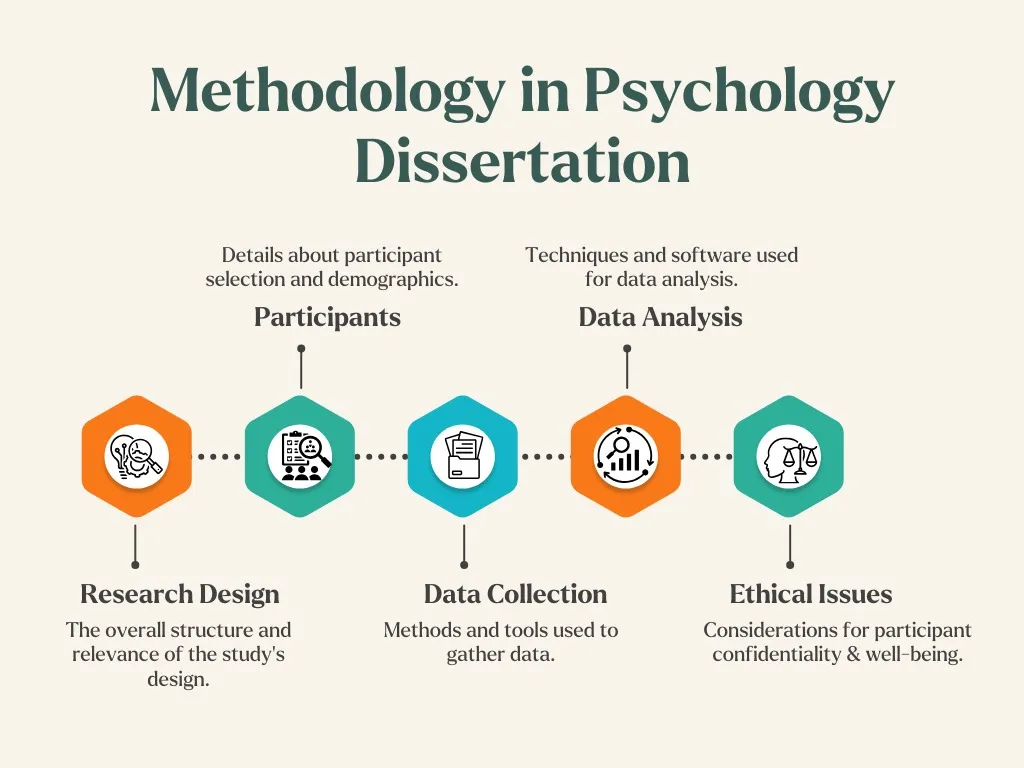
Research Design
Include an overall structure of your study. Is it an experiment, a survey, or a case study? Mention why this design would be relevant to your research question.
Participants
Include information about the participants in your study. How were they selected? What are their demographic characteristics?
Data Collection
Explain how you collected your data. Was it questionnaires, interviews, or observation? Describe the tools employed, and, more essentially, the processes undertaken as part of the resolution plan.
Data Analysis
Describe the analysis conducted on your data. Did you use any statistical software? What tests were conducted?
Ethical Issues
Present the ethical issues of your research. How did you ensure confidentiality and well-being of participants?
How to Discuss Psychology Dissertation?
You should discuss what your results mean and relate them to the broader context of existing research.
Interpret the Results
Describe what your findings mean in the light of your research question. Are they compatible with your hypotheses? How do they stand compared to previous studies?
Discussion of Implications
Discuss the broader implications of your findings. What are their meanings for the field of psychology? In what ways could they affect practice or policy?
Clarify limitations
Be forthright about the limitations of your study. Were there flaws in methodology that could have affected the results?
Recommend Future Research
From your findings, highlight areas for future research. What did your findings leave open for inquiry? In what directions could future studies be steered?
How to Writing Conclusion in Psychology Dissertation?
The conclusion is the final place whereby one is granted a chance to advance an influence on the reader. Summarize your research, reiterate its importance, and indicate some practical applications in the future or series of further research. Your conclusion based on this:
- Summarize Key Findings: The main findings that have been drawn from your study need to be summarized here. What has your research found out?
- Restate the Significance: Reiterate why research is important. In what way has this study been useful to the area of Psychology?
- Future Directions: Include some suggestions for future research. In what ways could other researchers follow up your results?
- Final Thoughts: End the paper with a statement that will be memorable to the reader and bring the whole paper to a proper conclusion.
Tips for Writing a Good Psychology Dissertation
A good psychology dissertation is much more than succeeding the academic requirements. It makes important contributions to the field. Listed below are some key elements that make a dissertation outstanding:
Originality
It must add something new to the area being researched in psychology. Such topics should be avoided that seem over-saturated or have absolutely no room for new analysis.
Research Questions
The backbone of the dissertation is a clear, well-defined research question that helps guide the research and keeps the writing on track.
Literature Review
A good literature review forms the base for extensive study. This will further identify certain gaps that need to be addressed by your research.
Methodological Accuracy
Justification and appropriateness of the used research methods in your research question are very essential. Be it experimentation, surveys, or qualitative interviewing techniques, the methodology must be robust and reliable.
Structure and Clear Flow
Logical structure with clear headings and subheadings guides the reader through the argument logically. Each section should have a natural flow into the following one.
Critical Analysis
Do not simply present data. Critically analyze your findings. State the implications of the research, its limitations, and how to further study in needed areas.
Time Require to Write a Psychology Dissertation
Time required to write a psychology dissertation because It differs with the topic being researched, type of research and working culture of the person. However, the average time required to complete an in-depth, well-written dissertation will take anything from six months to one year.
Half a Year to One Year
Normally, the first couple of months are used for choosing a topic, literature reviews, and the formulation of research questions. The next few months should be used for data collection, analysis of that data, and writing.
Consistency is Key
It needs a large amount of writing practice, and it must be done rather on the daily basis. If delay starts to occur, then in the rush, often the writing quality is lower in terms of research and writing.
Can a Dissertation Be Written in 2 Months?
Even though this idea will sound harebrained to many people, technically, it is indeed possible to write a dissertation in two months. However, it is not recommended unless necessary. Here’s why:
Time constraints
A psychology dissertation includes not only writing but also detailed research, data analysis, and revision. Compressing it into two months can compromise the quality of your work.
Stress and Burnout
The pressure of such a tight deadline can result in huge stress and possible burnout, mental and physical, during this period.
Quality Over Speed
A well-written dissertation requires an investment of time. If quick, it will likely be weak in depth, clarity, and general academic difficulty.
Final Words About Psychology Dissertation Writing
Dissertation in psychology is, therefore, the most pivotal stage of a learner’s academic process. This blog seeks to provide key guidance to make that smoother and more manageable. This blog will arm you with tools and knowledge for success. By using these strategies, students can confidently and clearly approach a dissertation.
This blog is a valuable resource for psychology students at all levels. Through our website, we give students access to expert tips, workable tools, and a strong community deeply committed to succeeding in academics. This is a place where you, as a students can receive professional advice and practical resources in the pursuit of academic excellence.
We provide a degree-oriented specialized personalized writing, and research service that really makes complex tasks readily accessible. From writing a dissertation to student study advice, we are your one-stop-shop at every turn.
FAQs About Psychology Dissertation
What Is the Average Length of a Psychology Dissertation?
On average, psychology dissertations fall in the range of word count of 10000 to 15000 words. However, it must be according to the requirements of a certain institution.
Can You Use ‘I’ in a Psychology Dissertation?
This depends on the guidelines of your institution. While some are okay with the use of first-person perspective, others may require third person to add objectivity to the paper.
What Are the Common Mistakes to Avoid?
Some of the common mistakes to be avoided are not giving focus to the subject, not going through the literature well, having poor methodology, and proofreading is not proper.
How Important is the Abstract?
Your abstract is therefore a small, important summary of the research. It should be brief but must span the entire dissertation, making the content clear to readers.


